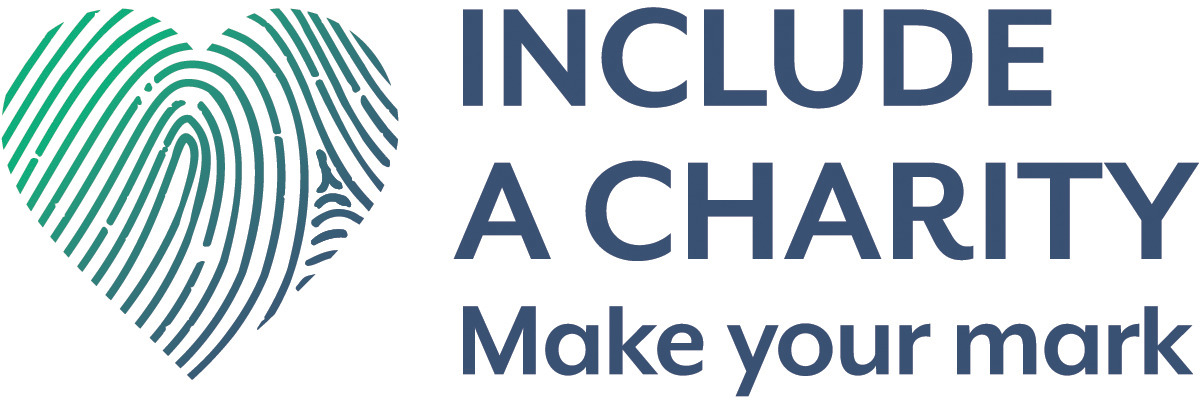Bringing Boomers charitable ways into the next generation
A loving teen girl embracing and kissing her happy grandmother from behind and holding each other outdoors. Every generation makes...

Consider this scenario: You’re 32 with no dependants. You’ve only recently left your childhood home, where your mum – a single parent – always cared for you.
Soon after, you meet a new partner who moves in with you – quickly. Then, just five months later, you pass away suddenly.
Who do you think would – or should – be left your superannuation?
Well, this is a true story. And in this situation the late person’s super funds went solely to the new partner. Why? Because of the interdependent nature of their financial relationship.
Legally correct. Yet, some might say, morally questionable.
So who decides who gets your super? We spoke to Sage Succession Law’s Principal Estate Lawyer, Rohani Bixler for the facts on superannuation beneficiaries, death nomination – and where charities and lawyers fit into the process.
Superannuation and estate planning
In 2020 the Global Pension Assets study concluded Australia’s pension market is the most successful in the world, increasing by 11.3% per year over the last 20 years.
So, with all this retirement money growing in our funds, it begs the question: Where does any leftover super go when we pass on?
We asked Principal Estate Lawyer, Rohani Bixler.
‘Many Australians don’t know superannuation is not included in your estate,’ says Rohani. ‘Due to the differences in tax compliance, superannuation is not considered an asset by law until you are of pension age.’
If it’s not an asset, what is it?
‘Your superannuation is held by the super fund in a trust structure that’s governed by a lot of legislation,’ says Rohani. ‘So, it needs to be considered separately in your estate planning.’
What is a superannuation death nomination?
Now that we know super needs to be delegated separately, how do we ensure it goes to the person of our choosing?
‘We should all complete and sign a superannuation death nomination form,’ shares Rohani.
‘Each super fund will have its own process for this, so it’s best to contact them directly or look at their website. But it should be a simple form that allows you to choose where your money ends up,’ says Rohani.
Is it really that easy? According to Rohani, not exactly.
‘The reality is many super funds only offer non-binding death nomination. Which means they can still use their discretion when deciding who to release your super balance to.
‘But at least by making your choice known, it’s far more likely your wishes will be executed – as long as you choose an eligible beneficiary,’ Rohani states.
Who can be nominated as a beneficiary?
Not everyone is automatically allowed to receive your super balance upon your passing.
Rohani explains. ‘To be considered as a possible beneficiary of your superannuation, the person must be considered a dependant – or have a financially interdependent relationship with you.’
For clarity, eligible superannuation beneficiaries include:
‘You do have the option of instructing the executor of your Will to distribute your superannuation to other people, even if they are not considered a dependant,’ Rohani continues.
‘But if this is your goal, it’s always best to seek personalised legal advice to see what’s possible.’
The issues with superannuation death nomination
With super nomination, there’s a lot of confusing legislation, and many issues can arise.
‘Challenges with binding death agreements often result due to the individual’s limited knowledge of superannuation rules, paired with a lack of follow-through from the superannuation funds,’ shares Rohani.
So how do these problems play out?
‘Because binding death nominations aren’t commonly discussed – and the process varies from fund to fund – most people aren’t even aware they need to state who they want to receive their super. Or if they’re aware, they still may nominate someone who’s not even eligible,’ Rohani says.
‘And the reality is, most superannuation funds won’t even check the suitability of your binding death agreement until a claim is made on your super. By which point, it’s obviously too late.’
Leaving your super to charity
Want to leave your super to a non-profit rather than a person? You may need to think again.
‘Unfortunately, Australia’s current regulations don’t allow you to add a charity as a beneficiary in your superannuation death nomination,’ states Rohani.
Include a Charity is one of many organisations who are in the process of lobbying the government to change this legislation, to allow Australian DGR charities to be named in superannuation death nominations. Rohani believes this would be as straightforward as adding in an additional line item to your
But what’s the reason for the current rules?
Rohani shares. ‘As it stands, charitable donations from superannuation passing into your estate make the gift subject to a 17% tax rate. Whereas donations made while you’re still alive and general estate bequests are tax-deductible.’
However, if donating your super to a charitable organisation is something you want – and you make a formal agreement and let the desired charitable beneficiary know of your intentions – they would then have the right to contest.
‘Because ultimately, it is about honouring your final wishes,’ Rohani reminds us.
‘So, if the super fund’s decision is contested and it goes to court, at least all parties can be heard. And your superannuation death nomination will support that process.’
Gifting your superannuation could change the world
Legacy Foresight’s 2023 research in Australian attitudes towards leaving a gift to charity in their Will stated that bequests make up to 55% of the total amount of donations charities receive.
Even though it’s hard to find a definitive figure (due to the lack of regulations around reporting), it does show that gifts in Wills is both a significant charitable support and a big growth area.
Another interesting takeaway? The growing percentage of child-free adults rose from 12% in the Boomer population to 16% in Gen X.
Now, this doesn’t always mean they don’t have any dependant relationships. But many expressed they do heavily consider bequests and charitable giving in the absence of children.
This is another reason organisations and lawyers, such as Rohani, would like the superannuation legislation changed to allow people to choose charities as beneficiaries.
‘I work closely with my clients, and I hear their true wishes before they get shaped by rules and obligations,’ shares Rohani.
‘And although I am only allowed to advise clients, not encourage them, I admit it can be frustrating at times to not be confident I can honour their true wishes.’
Get your facts from trusted professionals
The reality is, when it comes to superannuation rules, things can get confusing – fast.
Rohani agrees. ‘Any time you make changes to your superannuation beneficiaries, it’s important to consult both an estate lawyer and your specific fund.’
‘Because while I understand why people choose to take care of it themselves, many do find the relevant information is not readily available, or clear,’ she says.
And if you’re attempting to add a charity as a beneficiary, the same advice applies.
‘Speak to the bequests arm of the charity you wish to support, as they will be sure to have valuable insights for how to make the most impact with your gift,’ Rohani concludes.
Because, at the end of the day, this is what life is all about. Supporting the people and organisations we love – and leaving a legacy you’re sure to be proud of.
Include a Charity is a social change campaign by Fundraising Institute Australia. Our goal is to encourage more people to leave a gift in their Will and support more important causes into the future. Explore the charities we collaborate with at www.includeacharity.com.au and learn how you can make Australia, and the world, a better place for all.
A loving teen girl embracing and kissing her happy grandmother from behind and holding each other outdoors. Every generation makes...
From the Silent Generation (1925 – 1945) to Gen Alpha (2010 – 2024), every generation has its own unique way...
Did you know that more than half of all Australians don’t have a Will – 52%, to be precise. And...

Include a Charity is a campaign of Fundraising Institute Australia
PO Box 549, Crows Nest, NSW, 1585
Ph 1300 889 670 F 1300 889 671
Email [email protected]
ABN: 51 943 541 450
In the spirit of reconciliation Include a Charity acknowledges the Traditional Custodians of country throughout Australia and their connections to land, sea and community. We pay our respect to their elders past and present and extend that respect to all Aboriginal and Torres Strait Islander peoples today.
